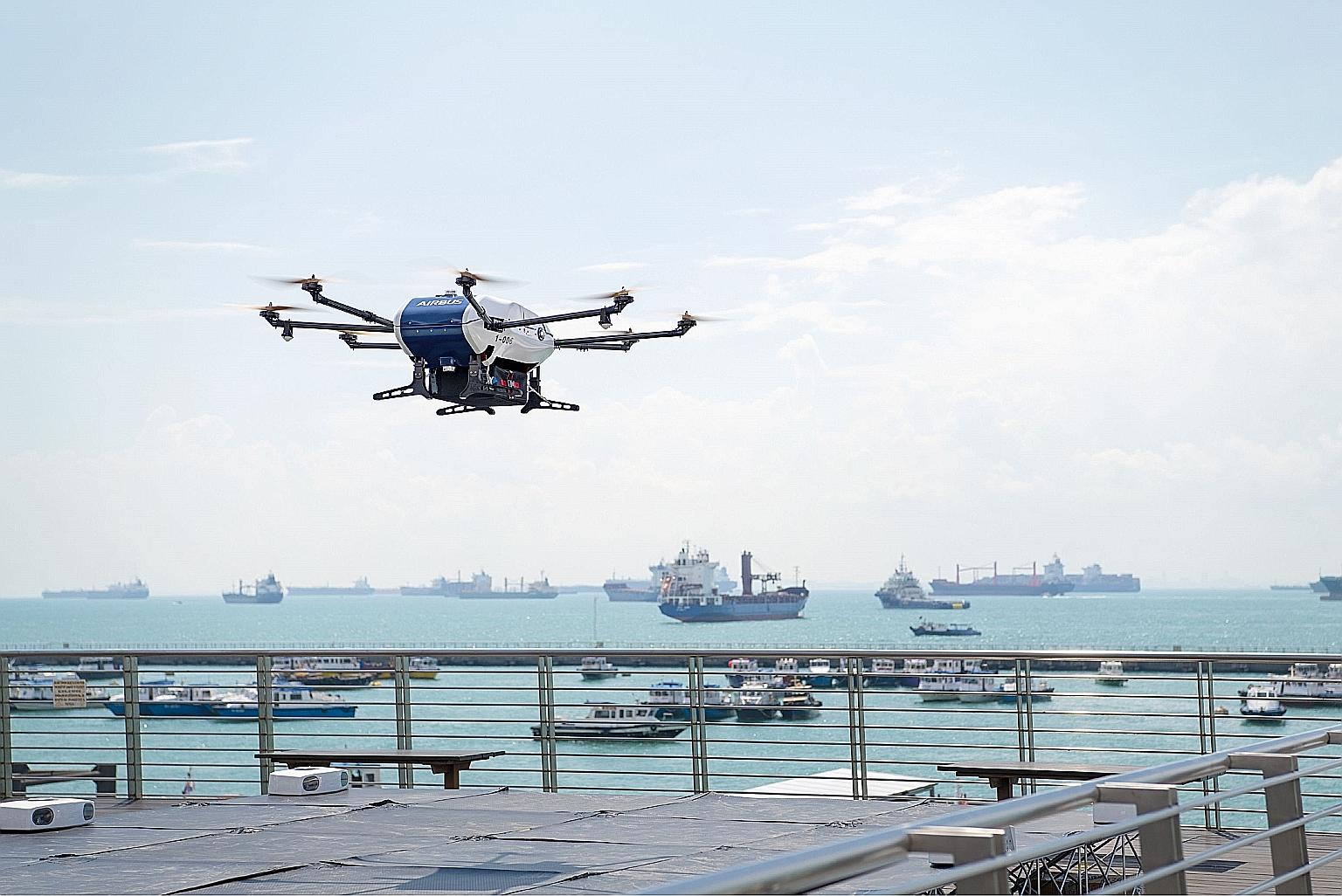5G trial to test drones for improved port surveillance
One-year study on how Airbus drones can be remotely controlled over 5G mobile networks
Sign up now: Get ST's newsletters delivered to your inbox

An Airbus Skyways drone at the Singapore Maritime Drone Estate. In a joint statement yesterday, the Infocomm Media Development Authority, the Maritime and Port Authority of Singapore and M1 announced the partnership with aviation giant Airbus for the one-year flight trial, which will begin in August.
PHOTO: AIRBUS
Drones will dot the skies above Singapore's southern coastal waters as part of a 5G trial to improve port surveillance.
The one-year flight trial will begin in August and test how Airbus drones can be remotely controlled over 5G mobile networks for the inspection and management of port incidents.
In a joint statement yesterday, the Infocomm Media Development Authority (IMDA), the Maritime and Port Authority of Singapore and M1 announced the partnership with aviation giant Airbus.
"We believe that 5G will sharpen Singapore's competitive advantage as a key trading and connectivity hub in the region and beyond," said IMDA chief executive Tan Kiat How, urging other enterprises big and small to join in building Singapore's 5G ecosystem.
Airbus head of unmanned traffic management Isabel Del Pozo De Poza said: "This collaboration will establish key cellular 5G performance... requirements to enable (unmanned aircraft) to safely integrate and fly in national airspace systems."
The localised 5G network to be set up by telco M1 is not part of Singapore's two planned nationwide networks that will blanket the entire island with 5G signals by 2025.
Singtel and a joint venture between StarHub and M1 have been awarded licences to build the two nationwide 5G networks.
5G networks promise lower latency and higher surfing speeds than their 4G predecessors.
These advantages are expected to translate to more precise, safe and reliable communications for unmanned aircraft operations.
5G technologies also provide more precise real-time data on the location and position of drones than satellite technologies, which are more commonly used today.
In addition to the coastal trials, M1 and Airbus signed a memorandum of understanding to conduct 5G trials in inland areas to address the growing interest in unmanned aircraft systems such as drones from other industries.
Last month, IBM, Samsung and M1 announced a tie-up for a 5G smart manufacturing trial to look at how the technology can improve the control of smart devices - such as robotic arms - on factory floors.
Last year, Singtel and M1 began testing the remote control of port equipment, such as cranes and driverless vehicles, over a 5G connection with port operator PSA International.
IMDA launched a $40 million fund with the National Research Foundation last June to accelerate the roll-out of 5G technology in six strategic clusters, including maritime operations.


